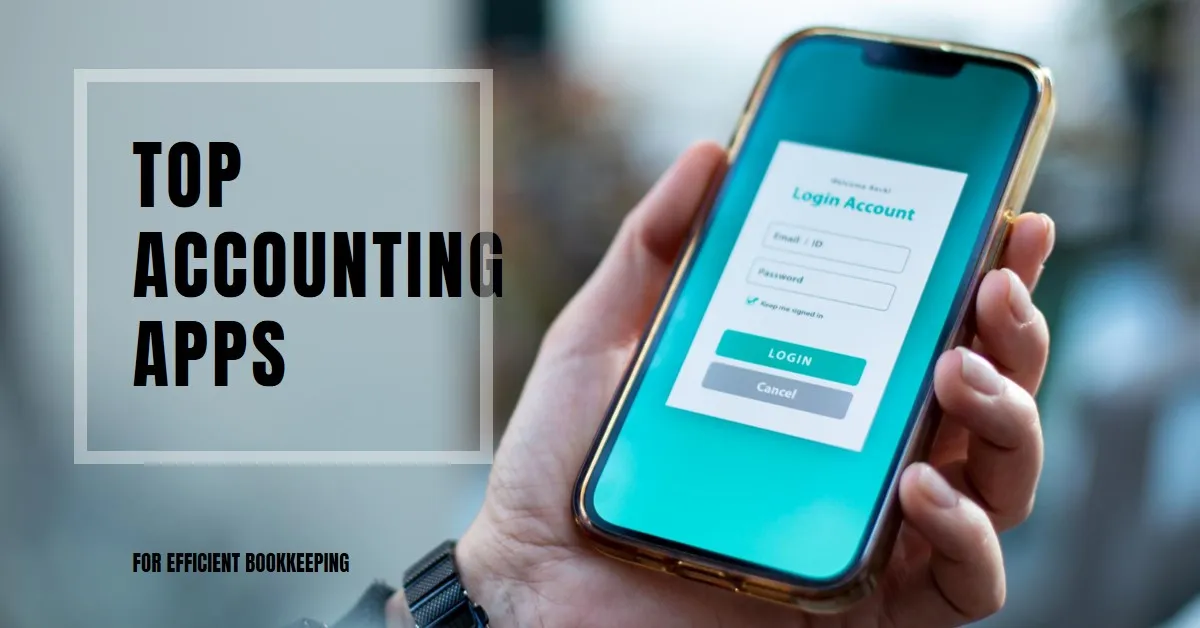Managing finances is key for a thriving small business. Yet, many owners might not know if they’re using the right tools. Enter the world of cloud-based accounting software. This field offers innovative solutions that save money. It ranges from easy invoice apps to full tax software. It’s crucial to understand each one for your success. With insights from over 250 small business product reviews and years of experience, you’re on your way to mastering your finances.
Key Takeaways
- Discover time-saving features in cloud-based accounting software designed for small businesses.
- Compare industry-leader ratings and find software solutions tailored to invoicing, inventory, and financial tracking.
- Explore affordable small business accounting solutions starting as low as $0/month.
- Identify opportunities with free trials and remarkable discounts to optimize your accounting investment.
- Understand tiered pricing to better align with your company’s financial management needs.
- Learn how expert-rated tools can offer you a competitive edge in small business financial management.
Best Accounting Apps: Navigating Pricing, Plans, and Free Trials
Small businesses have many accounting app options. QuickBooks Online provides extensive tools and mobile use. FreshBooks offers an easy interface and proper bookkeeping system. Wave Accounting excels in invoicing and has a free version. Zoho Books scales well for growing companies with CRM features. Sage 50 Accounting boasts top-notch inventory features.
Businesses need various accounting tools. Payroll processing applications and expense tracking technology are essential. These tools help manage money effectively.
Bookkeeping automation can save time and money. Intuit QuickBooks Online and FreshBooks offer 50% discounts. These apps provide real-time financial reporting. Wave Accounting combines free and paid features.
Zoho Books offers a free plan for basic cash flow management. Here’s a comparison of top accounting app costs:
| Application | Base Plan | Mid-Tier Plan | Top-Tier Plan | Special Features |
|---|---|---|---|---|
| QuickBooks Online | $30/month | $55/month | $85/month | Mileage Tracking |
| FreshBooks | $19/month | $28/month | $45/month | Client Communication Tools |
| Xero | $15/month | $35/month | Varies | Invoice Creation |
| Zoho Books | Free Plan | $20/month | $40/month | Advanced Reporting |
| Wave Accounting | Free | Pay-per-use | Pay-per-use | Receipt Scanning |
This table shows diverse options for businesses. Companies can choose plans fitting their size and needs.
Understanding the Role of Accounting Apps in Modern Finance Management
Accounting apps play a crucial role in today’s finance landscape. They streamline processes, enhance accuracy, and provide real-time insights. These tools have become indispensable for businesses of all sizes, adapting to changing regulations and market demands.
The Evolution of Financial Management Tools
Finance management has transformed with new regulations like IFRS 15 and ASC 606. These changes push companies to adapt. Mobile accounting platforms and financial software have become key. They allow quick updates for new regulations and detailed profit and loss analysis.
In the past, finance management was challenging and error-prone. Now, accounting software and applications have made tasks smoother. They provide user-friendly interfaces for bookkeeping and balancing finances. These tools reduce unnecessary records and improve budget planning and analytics.
The Impact of Cloud-Based Solutions on Accounting
Cloud-based tools like Xero and QuickBooks have revolutionized accounting. These platforms offer secure financial data storage and protection against fraud. They excel in financial analytics, providing instant data insights.
User ratings demonstrate the effectiveness of these cloud-based programs:
| Software | Capterra Rating | G2 Rating |
|---|---|---|
| Xero | 4.4 (2800+ reviews) | 4.3 (600+ reviews) |
| QuickBooks | 4.5 (20000+ reviews) | 4.2 (800+ reviews) |
| NetSuite | 4.1 (1400+ reviews) | 4 (2900+ reviews) |
| Microsoft Dynamics 365 | 4.3 (5400+ reviews) | 3.8 (500+ reviews) |
| BlackLine | Features continuous accounting (Ratings N/A) |
Integrating Business Tools for Comprehensive Financial Oversight
NetSuite and Microsoft Dynamics 365 are part of larger ERP systems. These platforms link accounting app integrations across various financial areas. This integration provides easy data management and full control.
The combination of digital ledger technology and business tools offers immediate insights and better financial reconciliation. This connectivity is essential for businesses needing flexibility and precision. Embracing these financial tech improvements helps companies succeed in the fast-moving, data-centric business world.
Key Features of the Best Accounting Apps for Business Efficiency
Efficient accounting keeps a business successful. Proper accounts payable systems help achieve financial clarity and efficiency. About 46% of small business owners handle their accounting alone. This fact highlights the need for good accounts receivable tracking and smooth invoice processes.
Timely and correct bills are important for cash flow. A good invoice system does more than make bills. It enables solid tax strategies and expense analysis. This helps businesses manage their finances well.
Small business owners spend over 21 hours weekly on accounting tasks. This shows a big need for automation and smarter work methods. Using top software like QuickBooks Online or Xero can reduce time spent on these tasks.
Key advantages of advanced accounting solutions include:
- Real-time tracking of financial data to gauge business performance
- Decreased errors through automation features in accounting tasks
- Expense management functionalities critical for cost control
- Streamlining back-office workflows, thus saving valuable time
Integrated accounting systems boost productivity by centralizing financial tasks. They maintain general ledgers, automate various functions, and offer reporting tools. These systems make accounting easier and strategic for businesses of all sizes.
When choosing accounting software, consider the offerings of FreshBooks, Zoho Books, and Oracle NetSuite. They provide features from ledger maintenance to various billing options. With subscriptions starting as low as $10 a month, online accounting software is cost-effective and efficient.
The goal is to match your accounting needs with systems that manage your accounts receivable and payable well. They should also maintain compliance, boost financial performance, and cut workload. By including these key parts, your business will manage its finances with confidence and accuracy.
Exploring Popular Accounting Software for Small to Enterprise-Level Businesses
Businesses today are looking for QuickBooks alternatives and Xero compatible software to improve their accounting. Small business owners work over 21 hours a week on financial tasks. Options like FreshBooks and Zoho Books help them work faster while following compliance with U.S. GAAP.
Small Business Accounting Solutions and Their Key Benefits
Small businesses have specific needs. Many SaaS accounting solutions offer special features for them. Intuit QuickBooks Online is a top choice for about 26.56 million U.S. businesses. It balances budgeting, ease of use, and affordability well.
Accounting Software for Freelancers: Tailored for Simplicity and Functionality
Freelancers need easy and efficient tools to follow IRS guidelines for software. Software like FreshBooks has plans just for freelancers. They can handle their money well without giving up the ease of a personal finance app.
Enterprise Accounting Applications: Scalability and Advanced Financial Analytics
At the high end, enterprise accounting applications like Oracle NetSuite help big organizations. They need scalability and detailed financial reports. These solutions offer powerful analytics and work with ERP systems. This helps big companies manage and grow their business well.
Automated accounting is key for all sizes of businesses. It reduces mistakes and keeps financial data in one safe place. This helps companies make smart decisions for growing their business.
| Software | Target Business Size | Primary Features | Free Version Availability |
|---|---|---|---|
| FreshBooks | Freelancers/Small Businesses | Receipt Capture, Invoicing, Financial Planning | Plans tailored to different business scales |
| QuickBooks Online | Small to Medium Businesses | General Reports, Asset Management, Payment Tracking | No, but offers tiered pricing |
| Zoho Books | Small Businesses/Companies | General Ledger, Tax Management, Financial Reporting | Free for companies with limited needs |
| Xero | Wide range including Enterprises | Real-time Reporting, Accounts Receivable/Payable | Limited functionality with basic plan |
| Oracle NetSuite | Large Enterprises | Advanced Financial Analytics, ERP Integration | No, targeted at enterprise-scale needs |
Tech for accounting software for freelancers or broader SaaS accounting solutions serves varied business requirements. It offers real-time data, supports growth, and remains reliable. Plus, it helps firms follow compliance with U.S. GAAP and IRS guidelines for software.
Impressive Accounting App Integrations for Streamlining Business Operations
Modern accounting apps offer integrations that significantly improve business efficiency. These features transform financial management for companies of all sizes.
Maximizing Efficiency with Accounting Software Integrations
Accounting systems now connect with various business tools. This connectivity ranges from document scanning to premium payroll services. Mobile integrations through app stores further enhance flexibility and productivity.
How Secure Financial Data Storage Transforms Accounting
Data security is paramount in digital finance. Modern accounting software uses bank-level encryption to protect financial information. Cloud-based SaaS platforms offer both security and accessibility, revolutionizing data management.
Cloud-Based Innovations in Real-Time Financial Reporting
Real-time financial tracking is a game-changer. Cloud solutions provide instant insights, enabling quick, informed decisions. This immediacy is particularly valuable during busy periods and can directly impact a business’s success.
Here’s a comparison of some leading accounting software options:
| Software | Starting Price | Key Features |
|---|---|---|
| QuickBooks Online | $30/month | 750+ App Integrations |
| Xero | $15/month | Multiple Currency Support |
| FreshBooks | $19/month | Time Tracking, Project-Based Invoicing |
| Zoho Books | $15/month | Client Portal, Automation |
| Wave Financial | Free | Invoicing and Receipt Scanning |
When selecting accounting software, consider your current needs and future growth. Look for a balance of functionality, user-friendliness, and scalability. Cloud-based solutions offer the advantage of secure, instant access to financial data from anywhere.
For small businesses and freelancers, options like QuickBooks Online, FreshBooks, and Wave provide robust features at various price points. Larger enterprises might benefit from more comprehensive solutions like Oracle NetSuite, which integrates ERP and CRM functionalities.
The right accounting software can streamline operations, improve financial oversight, and support informed decision-making. As technology evolves, so do these tools, offering increasingly sophisticated features to manage complex financial landscapes.
Conclusion
Choosing the right accounting software depends on your business size and needs. From cloud-based solutions like Oracle NetSuite for mid-sized companies to user-friendly options like QuickBooks and Wave for small businesses, there’s a tool for everyone. Prioritize ease of use, scalability, and strong support when making your selection.
FAQ
How do pricing, plans, and free trials vary across different accounting apps?
How have financial management tools evolved with the advent of cloud-based accounting software?
What impact has cloud-based solutions had on accounting?
How do integrated business tools enhance financial oversight?
What are the key features to look for in accounting apps to improve business efficiency?
What are the benefits of small business accounting solutions?
What type of accounting software is best for freelancers and why?
How do enterprise accounting applications differ from other accounting solutions?
What integrations should I look for in an accounting app to streamline my business operations?
How does secure financial data storage transform accounting practices?
What are the latest cloud-based innovations in real-time financial reporting?
Source Links
- https://www.nerdwallet.com/best/small-business/accounting-bookkeeping-apps
- https://www.pcmag.com/picks/the-best-small-business-accounting-software
- https://www.businessnewsdaily.com/5709-android-accounting-finance-apps-small-business.html
- https://www.oracle.com/erp/financials/what-is-financial-management-system/
- https://www.spendesk.com/blog/accounting-automation-software/
- https://www.uschamber.com/co/run/finance/small-business-accounting-software-guide
- https://www.netsuite.com/portal/resource/articles/accounting/accounting-software-features.shtml
- https://www.businessnewsdaily.com/7543-best-accounting-software.html
- https://www.forbes.com/advisor/business/software/best-accounting-software/
- https://www.nerdwallet.com/best/small-business/accounting-software
- https://en.wikipedia.org/wiki/Comparison_of_accounting_software
- https://www.trustradius.com/accounting

